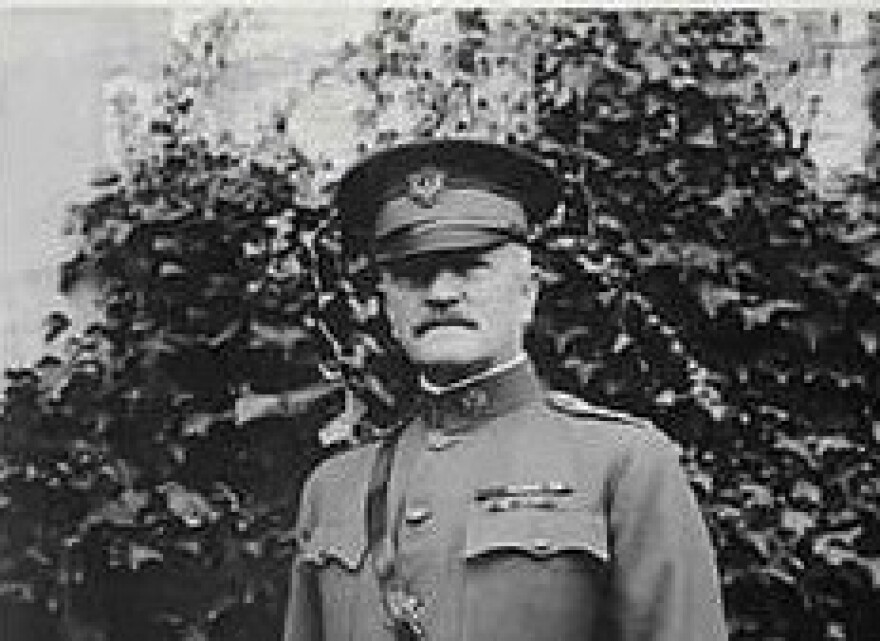One of the most memorable figures from World War I is Gen. John Pershing. Ron Edgerton, a history professor at the University of Northern Colorado, discovered a fascination with Pershing while in the Peace Corps.
ŌĆ£I went out to the Philippines and I was posted to a place that was very remote. And people there talked about this guy, Pershing," Edgerton said. "In fact, Pershing had actually ridden his horse through the village where I was in the Peace Corps; so I learned about him and became interested in him.ŌĆØ
Edgerton will portray Gen. Pershing during the High Plains Chautauqua in Greeley Wednesday, Aug. 2. This yearŌĆÖs theme -- "Echoes of World War IŌĆØ -- recognizes the 100th anniversary of the United States entering into the conflict. Notable figures including Winston Churchill, writer and activist Emma Goldman, and President Woodrow Wilson will also be featured.
Find the here.
Interview highlights with Chautauqua performer Ron Edgerton
Many see General Pershing as the embodiment of a modern American military officer. Why is he so highly regarded?
Ron Edgerton: Pershing really represents 20th century American warfare, as opposed to 19th century. Theodore Roosevelt really wanted to change that. He wanted to promote people on the basis of merit, on the basis of vigor and on the basis of determination and good training ŌĆō and a kind of a new, progressive American military.
Pershing represented that. There were some others who did that as well, but the men who had led the American forces in the Spanish-American War particularly at Cuba represented the "old guard." [ŌĆ”] Pershing was the new generation ŌĆō the new muscular, vital, vigorous American leaders and the American military that would not only fight in the United States, as in the Civil War, but all over the world, representing the new "Imperial America" that Roosevelt wanted.

Pershing allowed Black units to be integrated with the French Army. How was that viewed at the time?
Edgerton: ThatŌĆÖs a very controversial side to Pershing. He was called "Black Jack" because he had commanded African-American troops. He had a high regard for them: for their courage, their toughness, and their loyalty. And they liked him as well. So he considered himself to be ahead of his time in terms of dealing with and commanding minorities. And he was called ŌĆ£Black JackŌĆØ [but] ŌĆō thatŌĆÖs actually a sanitized of what some of his detractors called him.
World War I comes along, and thereŌĆÖs no integration of forces in the American military whatsoever. He felt that he was fighting two wars already ŌĆō one was against the Germans, and one was against the Allies who wanted him to integrate American troops into the British and French lines. He wanted a separate American army ŌĆō but he did make compromises on that.
One of those compromises was to let [in] a number of regiments of African American troops, one of which was the 369th ŌĆō the Harlem Hellfighters -- 2,000 men. They amalgamated or blended into French lines. They actually wore French uniforms, used French weapons, and fought alongside French soldiers, including soldiers from Senegal and some of the French colonies in Africa. The French liked these soldiers and got along with them fine, whereas they would not have gotten along with white American troops at all.
But most of the African-American troops he kept behind the lines, in service details ŌĆō working on the railroads, working on the docks, things like that. So thereŌĆÖs kind of a controversy there.







